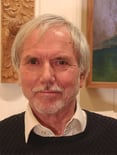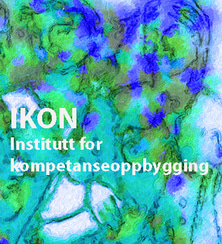The books on the psychology of the brain and linguistic brain therapy provide direct and indirect answers to the questions posed below.
One can also order lectures on the psychology of the brain and linguistic brain therapy, which consist of a combination of various topics.
The topics may include:
The Foundation
What is the psychology of the brain?
What is linguistic brain therapy?
The Research
What research underpins the psychology of the brain and linguistic brain therapy?
How to research emotions and mental disorders as they are experienced inside the head using only words?
What is the prerequisite for brain research to be able to develop scientifically robust knowledge about mental disorders and mental processes?
Why can't randomized research lead to sufficient scientific knowledge about the experience of mental disorders and other mental phenomena without a scientifically viable theory of mental processes?
Why must researchers change their paradigmatic views and how should they do it?
Why is most psychological research comprehensive, competent, engaged, skillfully performed and yet not sufficient to develop precise knowledge about mental disorders as experienced from within, inside the head?
The Theories
What theories underlie the psychology of the brain and linguistic brain therapy?
How can one develop scientific knowledge about the causes and experience of mental disorders using only logic?
What does it entail, and what is the significance for research on and treatment of mental disorders of the theories: the theory of inner and outer empiricism, the theory of the bio-psychic entities, the coupling theory for mental disorders, the coupling theory for mental change, the theory of the importance of the moment for emotions and mental change, the theory of the importance of language for emotions and for mental change, the theories of the therapeutic strategies, the theory of therapeutic resources, the theory of transformation, the theory of logic, psyche and biology, and the formulas for mental disorder and mental change.
The Mental Disorders
How are mentally anchored disorders mentally constructed? What are the similarities between various mental disorders?
What are the similarities between schizophrenia, joy, and proficiency?
Why can schizophrenic conditions be changed and proficiency developed using the same methods?
Lectures
Mental Change and Treatment
What happens mentally when mental changes occur through treatment?
How can one explain the remarkably good results achieved in linguistic brain therapy?
What treatment methods are used in linguistic brain therapy (LBT)?
Why can clients be treated without extensive assessments?
Which types of statements are crucial to achieving results in treatment?
What is the prerequisite for changing mental disorders?
How quickly can changes be achieved through treatment?
Why can good friends and family and amateurs sometimes lead to greater mental changes than psychologists and psychiatrists?
Why do psychologists and psychiatrists often get good results even though they lack scientific knowledge about the phenomenon of mental disorders and mental processes?
What can prevent getting results in treatment?
What are the prerequisites for becoming a good therapist?
How can mental disorders be distinguished from somatic illness with psychological symptoms?
Ethics
What does brain psychological ethics entail?
Psychological Concepts
Why must psychology and psychiatry problematize concepts such as relation, transference, resistance to treatment, delusions, hallucinations, mental illness, various diagnoses, mental resources, interpretation, evidence, etc., and what about these concepts should be retained and what should be changed?
Concepts from Brain Psychology and Linguistic Brain Therapy
What do they entail and what is the background for the concepts: the intersection between biology and psyche, bio-psychic units, biopsychic elements, transformation, psychological scientific, natural scientific psyche, capacity for change, the importance of fantastic fantasies, feeling drawing, intervention mapping.
philipdammen4@gmail.com
(+47) 94294327
Socials
Contact
Philip Dammen, Dr. Philos
Founder of IKON / researcher, therapist, and emeritus assistant professor in pedagogy at the Norwegian Academy of Music


